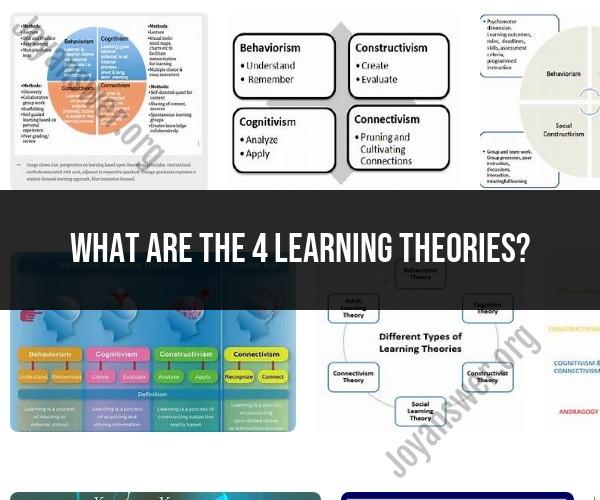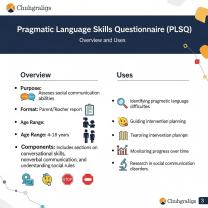What are the 4 learning theories?
There are several learning theories that provide frameworks for understanding how people learn. Four of the main learning theories are:
Behaviorism:
- Behaviorism is a theory that focuses on observable behaviors and the idea that learning occurs through interactions with the environment. It emphasizes the role of reinforcement and punishment in shaping behaviors. Key figures associated with behaviorism include Ivan Pavlov, B.F. Skinner, and John B. Watson.
Cognitivism:
- Cognitivism is a theory that emphasizes the role of mental processes, such as memory, thinking, and problem-solving, in learning. It views the mind as an information processor and suggests that learning involves the acquisition and organization of knowledge. Key figures associated with cognitivism include Jean Piaget and Lev Vygotsky.
Constructivism:
- Constructivism is a theory that posits that learners actively construct their own understanding of the world through experiences and interactions with their environment. It emphasizes the importance of prior knowledge, social interaction, and problem-solving in the learning process. Key figures associated with constructivism include Jerome Bruner and Lev Vygotsky.
Humanism:
- Humanism is a theory that places a strong emphasis on the individual's capacity for self-determination, self-actualization, and personal growth. It views learning as a self-directed and self-motivated process driven by human needs for personal fulfillment. Key figures associated with humanism include Abraham Maslow and Carl Rogers.
These learning theories provide different perspectives on how learning occurs and have influenced the field of education and instructional design. Many contemporary educational approaches incorporate elements from multiple learning theories to create effective learning environments that cater to diverse learner needs and preferences.
Exploring the Four Key Learning Theories in Education
There are four key learning theories in education: behaviorism, cognitivism, constructivism, and connectivism. Each theory offers a unique perspective on how people learn, and they can be used to inform educational practices in a variety of ways.
Behaviorism
Behaviorism is a theory of learning that focuses on observable behaviors. Behaviorists believe that learning occurs through conditioning, which is the process of reinforcing desired behaviors and punishing undesired behaviors. Behaviorism has been used to develop a number of teaching methods, such as programmed instruction and operant conditioning.
Cognitivism
Cognitivism is a theory of learning that focuses on mental processes, such as attention, memory, and problem-solving. Cognitivists believe that learning occurs when people actively process information and construct new knowledge. Cognitivism has been used to develop a number of teaching methods, such as cognitive apprenticeship and problem-based learning.
Constructivism
Constructivism is a theory of learning that focuses on the learner's role in constructing knowledge. Constructivists believe that learners are active participants in the learning process and that they construct their own knowledge based on their prior experiences and interactions with the world. Constructivism has been used to develop a number of teaching methods, such as inquiry-based learning and cooperative learning.
Connectivism
Connectivism is a relatively new theory of learning that was developed in the early 2000s. Connectivists believe that learning occurs through the creation of connections between different ideas and concepts. Connectivism has been used to develop a number of teaching methods, such as online learning and social media learning.
Understanding the Foundations of Learning: The Four Major Theories
The four key learning theories in education are all based on different understandings of how people learn. Behaviorism is based on the idea that learning is a process of conditioning. Cognitivism is based on the idea that learning is a process of mental processing. Constructivism is based on the idea that learning is a process of knowledge construction. Connectivism is based on the idea that learning is a process of connection-making.
A Comprehensive Overview of Four Learning Theories
Here is a more comprehensive overview of the four key learning theories in education:
Behaviorism
Behaviorism is the oldest of the four learning theories. It was developed in the early 20th century by psychologists such as John B. Watson and B.F. Skinner. Behaviorists believe that learning is a process of conditioning. Conditioning is the process of reinforcing desired behaviors and punishing undesired behaviors.
Reinforcement is anything that increases the likelihood of a behavior being repeated. Punishment is anything that decreases the likelihood of a behavior being repeated. Behaviorists believe that all learning occurs through conditioning.
Behaviorism has been used to develop a number of teaching methods, such as programmed instruction and operant conditioning. Programmed instruction is a teaching method that breaks down complex tasks into smaller, more manageable steps. Operant conditioning is a teaching method that uses reinforcement and punishment to shape behavior.
Cognitivism
Cognitivism is a theory of learning that was developed in the middle of the 20th century by psychologists such as Jean Piaget and David Ausubel. Cognitivists believe that learning is a process of mental processing. Mental processing includes processes such as attention, memory, and problem-solving.
Cognitivists believe that learners actively process information and construct new knowledge. They also believe that learners have different prior knowledge and experiences, which influence how they learn new information.
Cognitivism has been used to develop a number of teaching methods, such as cognitive apprenticeship and problem-based learning. Cognitive apprenticeship is a teaching method that pairs learners with experts who model the desired behavior. Problem-based learning is a teaching method that presents learners with real-world problems to solve.
Constructivism
Constructivism is a theory of learning that was developed in the late 20th century by psychologists such as Jean Piaget and Lev Vygotsky. Constructivists believe that learning is a process of knowledge construction. Knowledge construction is the process of building new knowledge based on prior experiences and interactions with the world.
Constructivists believe that learners are active participants in the learning process. They also believe that learners learn best when they are engaged in meaningful activities that are relevant to their lives.
Constructivism has been used to develop a number of teaching methods, such as inquiry-based learning and cooperative learning. Inquiry-based learning is a teaching method that presents learners with questions or problems to investigate. Cooperative learning is a teaching method that groups learners together to work on a common task.
Connectivism
Connectivism is a relatively new theory of learning that was developed in the early 2000s by George Siemens and Stephen Downes. Connectivists believe that learning is a process of connection-making. Connection-making is











